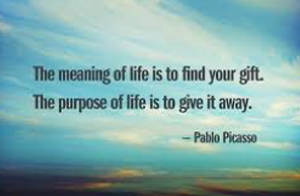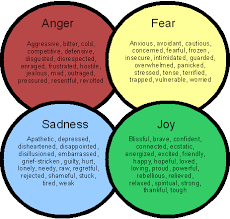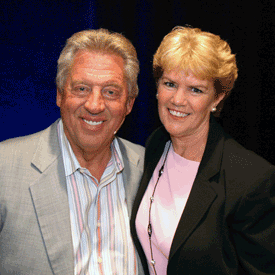
by admin | Feb 26, 2023 | Life Coaching, Parenting, Preschool Teacher Training
I led an 8 week Mastermind using Viktor Frankl’s, Man’s Search for Meaning, over 3 years ago. I can honestly say, not a week goes by that I do not recall some of the profound lessons that came from that study. I find the beginning of the New Year, an appropriate time to share a few of those lessons.
I spend time at the end of the year to go back over my last year’s calendar. On a sheet of paper with two columns I list-
- Celebrations…specific ways I grew and improved and new accomplishments, areas in which I will continue to learn and move forward and new learning/methods/goals I will find a way to accomplish.
- What I will stop doing and what will replace that. This is my favorite time of year. I love pausing, reflecting, and setting up plans for the New Year. Along with my two column chart, I include the ways I made a difference in the world, whether it be one person at a time or larger groups. That to me is the most important celebration.
While leading both individual and group coaching sessions, when asked, “What is your purpose in life?” the response is often “…to make a difference in people’s lives.” I do not stop there. I probe for them to go deeper. In what way will you make a difference? What will that look like? Will it be a specific profession? Will it be a role as a mother/ father/ grandparent? Will it be your core values you exhibit that will impact others by your example? What are those core values? Is this the basis for finding meaning in life?
The paradoxical secret to finding meaning may be to not look for it. The most satisfying forms of meaning may emerge not when we pursue them directly, but when we instead seek encouraging others, love, justice, or, as Frankl writes, “a cause greater than oneself.” The secret to a meaningful life may be to remind ourselves every day to do the right thing, love fully, pursue risky experiences, and undertake important tasks, not because we are trying to increase our sense of meaning in life, but because these pursuits are good in themselves.
Let me explain further. We are each born with unique skills, talents, traits. Each of these has been given in order to fulfill our purpose for being on Earth. Finding our own paths in which we are using what we have been given, in order to serve the world and others. This approach of doing what we do because it is the right thing, because it is what we believe, or it aligns with our core values, is a difference approach than searching for meaning.
I believe the real opportunity to live a life of meaning comes when we are faced with circumstances we do not desire. This is part of life. Brian Ridgway says, “Unless we decide what we don’t want, we can’t know what we do want.” So when faced with injustice, or abuse, or pain, insult, or loss of love, rejection…all the human conditions common to us all, what choices are there for how to respond. Here are a few suggestions:
- Pause, take 3-5 deep breaths. Let the logical thinking part of your brain, frontal cortex, catch up with the hijacked amygdala, the emotion center. Also, deep slow controlled breathing sends a message to the brain that calms and controls the nervous system.
- What is the right thing to do in the moment? Put it in perspective. It’s been said to ask yourself, “Will what is happening right now matter in 2, in 5, in 10 years?” Probably best to walk away.
- When there is a circumstance where someone you care about has hurt your feelings or done something that makes you mad, best to wait until emotion has subsided. However, very important that you let the person know how you felt. So often we hold our emotions in, never express them, and expect the other person to know, when nothing has been said. It is not fair to expect someone to read your mind when it hasn’t been expressed. Best to talk about it and clear the air. The same is true when in the work place, misunderstandings emerge. Best to talk about them instead of repressing thoughts and feeling.
- Be true to yourself. Know what is important to you and what a priority is for you. Is your time spent in alignment with what you say matters most to you? This is where actions speak louder than words. Walk the talk. This is when the path you take is aligned with life giving back meaning.
Consistently speak up and be able to say no if asked to do something that is not a priority for you. This goes the other way too. Is time with family a priority? Is health a priority? Is friendship a priority? If you find yourself saying, “I’m too busy at night to read to my kids.” Or “I don’t have time to go to the gym.” Or “I have to work late. I don’t have time to meet up with my friends.” What you are saying when you don’t make time, is it is not a priority! Be clear what matters most and be aware how much time you make for that.
Viktor Frankl says that between stimulus and response, there is space. In that space is our power to choose our response. In that response lies our growth and our freedom. Frankl believed that within every circumstance, life is still expecting something: something in the present and something in the future. If we see life as something greater than our self, does it help to think, what is life expecting of me now? Is it to be angry, unforgiving, spiteful, jealous…all of those choices that do not serve others or our self? Or are we given circumstances in order to learn something, become stronger, or to be a model, an example as to how a higher power is more in control than my weaker human tendencies.
As a Grandparent, I find a part of the purpose, the meaning I find in life, is being a beacon for those little new beings. What do I want them to see in my reaction when I am disrespected in front of them? Will they see unconditional love, no matter whether it is earned or not. Will they see me doing what is right, no matter what? Will they witness serving others for no expectation of gain? Will they see me as someone that listens and shows love with time?
Living my life now as I want this chapter in my book of life to be written, is what gives my life meaning for me. I do not have to search. Meaning surrounds me in all I have to be grateful for. I need to live life as the best person, using, not wasting, my God given abilities. When I am finished with this life, I want to know that I lived life to the fullest, serving others, and becoming the very best I can become.
I love the quote, “I want to die empty.” Also, Wayne Dyer says, “Do not die with the song still inside you.” These thoughts and intentions is what gives my life meaning. How about you?

by admin | Nov 2, 2022 | Parenting
Seven Reasons Why It’s Important
1) Keeps Kids Out of Trouble
Kids who live in families that eat dinner together regularly are less likely to be involved in at risk behaviors. According to the 2000 study done by the National Center on Addiction and Substance Abuse at Columbia University (CASA), children who don’t eat dinner with their families are 61 percent more likely to use alcohol, tobacco, or illegal drugs. By contrast, children who eat dinner with their families every night of the week are 20 percent less likely to drink, smoke, or use illegal drugs.
2) It’s Bonding Time
Families who eat dinner together regularly are more likely to have stronger, happier family relationships. As families struggle to find amounts of quantity and quality time together, family dinnertime provides the opportunity for both. When families hang out together and communicate, they grow strong and healthy.
3) Offers Stability
Families who eat dinner regularly develop a stronger family identity. Eating together serves to build a family identity. Additionally, this family “routine” provides a sense of stability and security that provides kids with a positive environment where they can grow into healthy adults.
4) Time for Family Updates
Families who eat dinner together regularly can keep in touch with each others’ lives. Everyone – kids and parents alike – can keep up-to-date during your family dinnertime on what is going on with school, jobs, family life, and friends.
5) Chance to Resolve Conflicts
A regular family dinnertime provides natural opportunities for planning and problem solving. Scheduling family meeting times to discuss planning, needs and problem solving can be difficult. A regular family mealtime can offer a natural solution to the challenge.
6) Educates Your Kids
Eating dinner regularly fosters learning. When families who eat dinner together engage in a variety of conversation topics, learning is encouraged. Kids who are exposed to regular family discussion times learn a broader vocabulary.
7) Healthy for the Whole Family
Kids are likely to receive better nutrition when eating dinner regularly with their families. A simple, but true rule applies: when kids eat with their families, they eat better. A family dinnertime means kids are more likely to eat a nutritionally balanced meal, lower in sugar and fat content, than if they prepare or purchase meals on their own.

by admin | Jul 21, 2020 | Life Coaching, Parenting
What happened to a joy filled life when you became a parent? Weren’t you told these would be the happiest days of your life? Are you beginning to think you are not cut out to be a parent or that something must be wrong with you?
So glad you stopped to read this article. Something is likely not wrong with you and you still can get back to thinking there is joy in being a parent. It begins with several simple but not easy steps.
- Let go of being perfect, the best parent on the block. That worked for you when it was only you to take care of. You now have been given a loan of another life to guide temporarily. What is best for your child is you, not a perfect parent. It is a relaxed and calm and happy parent who is imperfect.
- Stop comparing yourself and your child to others you see or hear about on social media. You only see a small part and what is revealed to you. Everyone’s life has good and bad times.
- Become clear on what matters most to you as a person, a parent, a family. What is your family mission statement? Is it one centered around empathy/kindness toward each other? Is it being a family that values health and wellness? How about a family that is curious and loves to learn? Once you figure out personally what your core values are, be sure to align time spent there.
- Is respect for self and respect for each other expected at all times. That includes letting family members know when you need a break and demonstrating you value yourself as much as them by taking a break to soak in the tub, play a round of golf, or read a book in the shade for 20 minutes. Self-care matters.
- Make meal time spent together as a family a priority. This is when listening to others is taught and opening up and sharing feelings happens in a safe environment.
- Technology has its place and is not at the table during meals, in the car on short rides, in stores when shopping, or in the bedroom after bedtime begins. Charging stations are in the kitchen. This goes for adults and children alike. Young children don’t engage in ipad/phone games and very limited TV. Older children have specific limited time after other responsibilities completed.
- Spend time ‘teaching’ feeling words. Model using them. When you are frustrated, let your family know. When you are sad, let them know. When you are proud, disappointed, enthusiastic…let them know. Have a ‘feelings chart’ hanging for the young child to show you how they are feeling. When able to express in words their emotion, there will be less showing you in unwanted behavior.
- As a family, if able to do any kind of relaxation/mindfulness activities, will teach coping skills for all. There are many child oriented guided meditations on Youtube. Taking 5 minutes to sit together quietly in meditation/deep breathing before bed is an excellent habit to begin.
- All members of the family have chores, even the youngest and especially the older children. Do not ‘do it all’ because it’s easier that expecting your family to help. Delegate.
Hopefully these ideas do not stress you out more. Try one at a time. The very most important suggestion is to be present. What you children will remember most was the time and love you gave them. Take time to hug, cuddle, say ‘I love you’, and ‘I am proud of you’. Take time to talk and praise more that you correct. Take time to talk about how each are feeling. Be there to listen, eye to eye. How you relax even during challenging times, gives your family a model that you are resilient and as a family, can handle it all…together.

by admin | Feb 5, 2019 | Life Coaching, Parenting
Do you find that to be an interesting question? If you were to be completely honest, do you only return it when someone is watching? Do you never because you think, someone is hired to come gather up the carts and that is not my job?
(Before I go any further, please know there are obvious exceptions. This question is for those that are able to make a choice: to return the cart or not. If physical disabilities or family safety prevents you from returning the cart, then this article is not for you. However, please keep reading.)
Do you have a pet peeve? This happens to be one of mine. Watching someone abandon their cart and watch it roll into a car or take up a parking space, or roll into the line of cars driving past, has made me stop and think, ‘there is more to this than meets the eye’. I believe there are two kinds of people in the world…cart returners and cart discarders. Whichever one you are, I believe, says a lot about you.
Are you someone that takes the time to walk their cart back, no matter what. It could be raining. You could be in a hurry. Your 3 year old could be crying. I believe you are someone that thinks of others first. To make excuses, leave the cart half way up on the curb shows one thing about that person…it is all about THEM.
Those that take the time, you are showing you care about the people that work at the store. You do not expect someone else to do it for you. You are not selfish.
To take it one step further. When you see an elderly person walking their cart back, do you offer to take it for them? This all shows you care about helping others.
What else does being a cart returner say about you? It says you are disciplined. When it is raining, or a child is crying, or NO ONE is looking and you STILL walk your cart back, it is moments like these that define you. WHAT?? Returning a silly old cart. YES! There are times in everyone’s life when it is easier to NOT do the right thing. Walking the short distance shows you are disciplined. You are committed to a moral standard that you won’t break. Discipline is something that people admire. Disciplined people are able to achieve a whole lot more in life than undisciplined people.
It has been said, “How you do some things is how you do all things.” Being selfish and undisciplined about returning the cart. Does that trait show up in other things? Yes.
The beginning of this article is intended to somewhat entertain, although I do believe the premise. What this is all about is CHARACTER.
What is character? What does a person with high moral character ‘look’ like? My John Maxwell Certification included a youth leadership program for us to use with young people called Youth Max. This program included 4 modules: positive self esteem, overcoming fear of failure, stand up and be counted (anti bullying), and character development. Within the character developoment module, one lesson the kids could relate to was the definition of character being, what you do when no one is looking. I knew this would get their attention. At this age, pushing boundaries and not getting caught is very relevant. Needless to say, this was an important discussion and important lesson. Why? When all is said and done, your character is more important to becoming a successful, flourishing adult than your talent.
It is not uncommon for very talented people to be noticed and acknowledged. However, without a strong character, they rarely stay in the limelight for long.
My mentor, and world renowned leadership expert, John Maxwell says:
- “Talented people are praised for what other people see them build. Character builds what is inside.
- Talented people are sometimes tempted to take shortcuts. Character prevents that.
- Talented people may feel superior and expect special privileges. Character helps them know better.
- Talented people have the potential to be difference makers. Character makes the difference in them.
- Talented people are a gift to the world. Character protects that gift.”
Based on the work of Dr. Allan Zimmerman of Trans4mind, here are some answers to two questions:
What is character?
How do I build a strong character?
WHAT IS CHARACTER?
- HAVING the right values.
When asked what do you want out of life? Common answers are, “I want to be happy”. Or “I want to be successful”. Have you ever heard, “I want to be good.”?
- DOING the right thing.
People of character know there is no right way to do the wrong thing. They also know there is never a wrong time to do the right thing. When I work with parents, I encourage them to teach their children to do what’s right, no mater how hard that is. I teach that this is a good basis for decision making. Ask, “Is my decision the right one or is it simply the easiest one?” People of character choose the right decision.
- BEING the right kind of person.
What are the character traits of someone that is BEING the right kind of person? To give only a few:
Someone that is honest, courageous, optimistic, kind…could go on and on. It is important to know, we all have work to do when it comes to improving his/her character. It is never too late to begin growing your character. Here are a few ideas.
HOW TO BUILD A STRONG CHARACTER
- Be a life long learner.
Unless you are continuously learning and growing, you are falling behind. Each day is a new day. Life is changing fast. To stay relevant, continuously seeking education is vital to a strong character. “Work harder on yourself than you do on your job.” Jim Rohn
- Pursue excellence.
Only you know if you have done and been the best you could be. To the person of character, that is all that matters.
“The choice to be excellent begins with aligning your thoughts and words with the intention to require more of yourself.” Unknown author
- Practice persistence.
People of character are known for their persistence. My son who was a swimmer in high school once told me when I began swimming laps for exercise, “When you think you have swam as many as you possibly can, swim one more.” I never forgot that and have applied that thought to so many things in my life. You too may be surprised that you are capable of so much more than you think.
- Decide to be determined.
Success rarely happens overnight and success rarly happens without learning from mistakes. Do you possess a growth mindset or a fixed mindset? Carol Dweck pioneered this concept. From what I have learned from her, I teach teachers to praise children on their effort and process rather than results and outcomes. This kind of consistent praise results in children that love challenges and learning instead of fearing failure. Along the same thought, I have taught my grandchildren this mantra, “When things are hard, I try harder.” Another quote I heard by Roscoe Dunjee, “Some people succeed because they are destined to, most succeed because they are determined to.”Building character takes intention and awareness. Awareness of those you look up to and admire. Awareness as to who you want to be known as. Awareness as to what you want to be remembered as being. At the end of the day, the quality and depth of your life, your relationships, and your career is deeply affected by your level of character. Next time you are finished emptying that shopping cart, return it to where it belongs. That walk back to your car will be one filled with victory and pride knowing you just demonstrated you are a person of GOOD CHARACTER!!

by admin | Aug 10, 2018 | Uncategorized
To Control or Be Controlled…That is the Question
Imagine being able to have a desire for something very important to you in your life and being able to stay focused on that. To have a belief that it will manifest. You can see it with your mind’s eye, you can smell it, imagine feeling it with your hands, and hear the sounds that will fill your life. Does imagining this ability to focus in this way causes your heart to beat faster, your breathing to increase, and your hands to become sweaty? They are the thoughts your well-intended brain begins to produce.
The reason is, the brain is attempting to keep the status quo, to stay in the safe lane, inside the zone of comfort and familiarity, as a way to protect you from failure and hardship. Well, that brain needs to learn a few new ideas, doesn’t it? This is where my title, TO CONTROL OR TO BE CONTROLLED comes in. YOUR EMOTIONS. Now before you think for a minute that emotions can be controlled, let me clarify. Emotions are just what they are…and there are a few basic emotions that all emotion stems from: joy, sadness, anger, fear.
It is very important that we not tell someone to feel a certain way. Feelings are the thoughts in response to a circumstance that causes an emotion. It is these thoughts that then leads to an interpretation of the circumstance. This is the key to understanding where emotions come from and what can be controlled. It is the interpretation we all place on an event or a circumstance. If one could stop and reflect on what interpretation are your thoughts creating and where does that interpretation originate, using logic and think it through and understand the produced emotion.
In our society this past year, there have been too many horrific shootings of children done by youth or young adults. As a result, my passion has begun to revolve around a long term, multi-facetted outcome solution. It begins with shifting our teaching of young children to include emotion education. In our early childhood facilities, a great deal of emphasis is placed on academic learning to prepare them for kindergarten and beyond. That is fine except when there are no intentional ways implemented to build and strengthen a child’s emotional intelligence. These skills can be learned and expected. Making this a priority will produce children who have lower anxiety, prone to less stress, experience less bullying, and achieve more in school and in life.
Emotional intelligence (EQ) has more influence in one’s level of fulfillment in life than does one’s intellectual quotient (IQ). Studies have shown that IQ , your ability to learn, is fixed but EQ can be changed. The definition of emotional intelligence is the ability to identify and manage your own emotions and the emotions of others. I have studied and dissected what EQ is and am now teaching early education teachers how to implement specific tools and techniques in the classroom that increase children’s EQ and to encourage the Directors to support the shift in the culture within their school and create a climate of care and harmony. The 5 basic parts I teach are how to identify, label, and communicate emotions, how to manage and cope with these emotions, how to identify how others feel (empathy), how to build relationships with others, and how to develop a growth mindset that leads to loving learning and not fearing failure.
Here is a visual:

When a circumstance triggers a thought that interprets that event and creates an emotion, we could stop and ask ourselves if that interpretation is truth or stems from past circumstances. This seems like a lot of thinking but that is what you can learn to control and redirect.
How often have you heard someone say, “He made me so mad!” Instead of, “I allowed myself to get mad because I took what he did personally.” That is taking control. I have hope that our world can be one where each of us learn how to be aware of our feelings, what causes them, are able to communicate them in words rather than destructive actions, to listen with an empathetic ear, that will then lead to more deeply understanding each other. I hope that we all can learn to feel what other people feel as a result of our actions and are sensitive to not intentionally hurting and take the steps needed to help those who feel lonely and isolated.
As we go through life, we do not know what is on the road ahead. Circumstances may fall that totally change the trajectory of any one of our lives. Even though we may have become emotionally intelligent, we still may need the help of someone else. My challenge to everyone, including myself is…
- Take time every day to take an inventory of all for which there is to be grateful.
- Reflect on self, what emotions do I have, where do they come from, and what interpretation and thoughts have caused them.
- Pause and take a breath when an emotion has been triggered. Allow time to think before responding.
- Let others know how you are feeling, when it involves them and a misunderstanding. Pent up unresolved emotions do not go away. They fester and can cause stress, anxiety, health problems and more. Best to talk and express.
- We never really know what is going on in someone’s life. Keep the mantra of, “It’s not personal”. It may be more about the other person than you.
- Do not hesitate to be the first to apologize and take responsibility for misunderstandings, that leads to reconciliation. Not everyone is working on their emotional intelligence like you.
At the end of the day, controlling thoughts, interpretations, and response to emotions will lead to a life where the waves that crash upon us each day are not going to wash us up on shore. We can interpret each wave in ways that help us become more of what we were created to become. That is not something washed up on shore, brought down. Instead made stronger, wiser, and more capable to see what awaits around the next corner of life with eager anticipation knowing in our heart we will not only be okay, we will be amazing!!








 [/custom_frame_left]
[/custom_frame_left] [/custom_frame_left]
[/custom_frame_left]
Recent Comments